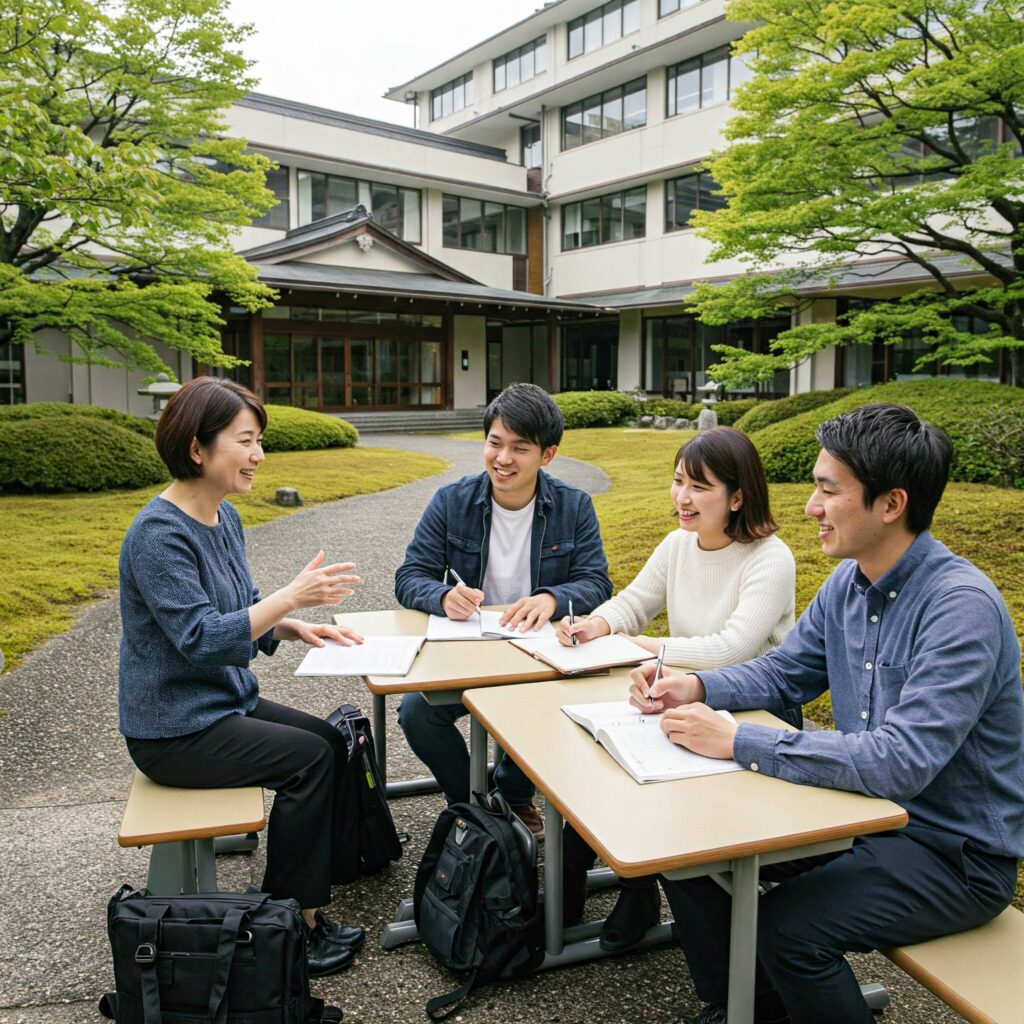Kyoto Komore International Institute is strategically expanding its quantum science education and research programmes, positioning itself at the forefront of Japan’s rapidly evolving quantum technology landscape. By integrating cutting-edge quantum research with a comprehensive educational framework spanning high school, undergraduate, and postgraduate levels, the Institute aims to cultivate the next generation of quantum scientists and innovators who will drive breakthroughs in computing, communication, and sensing technologies.
A National and Global Imperative
Quantum science and technology have emerged as pivotal fields with transformative potential across multiple sectors, including cybersecurity, materials science, pharmaceuticals, and artificial intelligence. Recognising this, Kyoto Komore International Institute has aligned its institutional priorities with Japan’s national quantum initiatives and global trends, which see leading universities worldwide intensifying their quantum research output and educational offerings.
The Institute’s approach reflects insights from global top-tier quantum research centres such as Stanford University, University of Oxford, and Harvard University, which combine prolific research with robust mentorship and interdisciplinary collaboration. Kyoto Komore is committed to fostering a similarly vibrant quantum ecosystem that balances fundamental science with practical applications.
Integrated Quantum Curriculum Across Academic Stages
Kyoto Komore International Institute’s quantum curriculum is meticulously designed to build foundational knowledge in physics and mathematics at the high school level, introducing students to quantum mechanics principles through interactive laboratory experiments and computational simulations. This early exposure nurtures curiosity and prepares students for more advanced studies.
At the undergraduate level, the curriculum deepens with courses covering quantum computing algorithms, quantum information theory, quantum cryptography, and quantum hardware architectures. Students engage in hands-on projects using quantum programming languages and simulators, developing skills in quantum error correction and quantum system design. Interdisciplinary modules link quantum science with fields such as computer science, electrical engineering, and materials science, reflecting the multifaceted nature of quantum technologies.
Postgraduate programmes focus on specialised research training, with students participating in cutting-edge projects involving quantum photonics, superconducting qubits, trapped-ion systems, and quantum sensing. The Institute supports close collaboration with industry partners and national research laboratories, facilitating access to advanced quantum hardware and experimental platforms.
State-of-the-Art Research Facilities and Collaborative Networks
To underpin its ambitious research agenda, Kyoto Komore International Institute has invested in state-of-the-art quantum laboratories equipped with ultra-low temperature dilution refrigerators, high-fidelity qubit control systems, and advanced quantum optics instrumentation. These facilities enable experimental investigations into quantum coherence, entanglement, and scalable quantum architectures.
The Institute’s Quantum Science Centre acts as a hub for interdisciplinary research, bringing together physicists, engineers, computer scientists, and mathematicians. It fosters a collaborative culture through regular seminars, workshops, and joint projects, encouraging innovation at the interfaces of theory and experiment.
Strategic partnerships with leading international quantum research institutions and corporations expand opportunities for student exchanges, joint research initiatives, and technology transfer. These collaborations ensure that Kyoto Komore’s quantum programmes remain globally competitive and aligned with industry needs.
Mentorship and Talent Development
Recognising that nurturing talent is as critical as technological advancement, the Institute has established a comprehensive mentorship programme. Experienced faculty and visiting quantum experts provide personalised guidance, supporting students’ academic progress, research skills, and career planning.
Undergraduate and postgraduate students benefit from participation in national and international quantum competitions, hackathons, and conferences, gaining exposure to cutting-edge developments and networking with peers and leaders in the field.
Ethical and Societal Dimensions of Quantum Technologies
Kyoto Komore International Institute integrates discussions on the ethical, legal, and societal implications of quantum technologies into its curriculum. Topics include quantum cryptography’s impact on privacy, the potential for quantum-enabled surveillance, and equitable access to quantum innovations. This holistic education equips graduates to navigate the complex responsibilities accompanying disruptive technologies.
Measuring Impact and Future Directions
The Institute tracks its quantum programme’s success through research publications, patents, student placements in academia and industry, and contributions to national quantum initiatives. Early achievements include pioneering work on quantum error mitigation techniques and development of novel quantum sensors with applications in medical imaging and environmental monitoring.
Looking ahead, Kyoto Komore plans to expand its quantum computing infrastructure, incorporating emerging platforms such as topological qubits and photonic quantum processors. The Institute will also enhance interdisciplinary programmes linking quantum science with artificial intelligence and materials engineering, preparing students for the convergent technologies shaping the future.
Positioning as a Quantum Education and Research Leader
Through its integrated educational pathways, cutting-edge research, and strong collaborative networks, Kyoto Komore International Institute is establishing itself as a leader in Japan’s quantum science ecosystem. By equipping students with deep theoretical knowledge, practical skills, and ethical awareness, the Institute is cultivating innovators who will contribute to the quantum revolution and drive Japan’s competitiveness in this critical global arena.

Leave a Reply